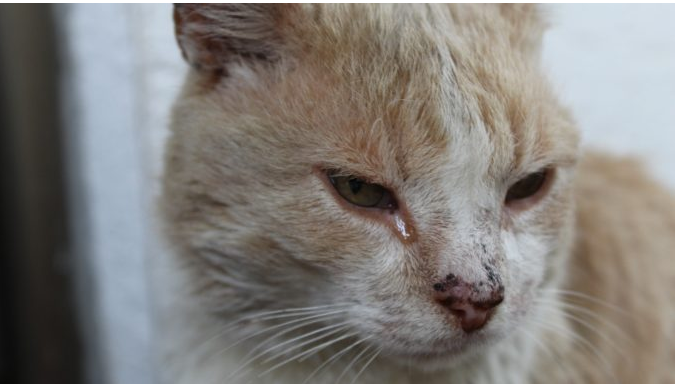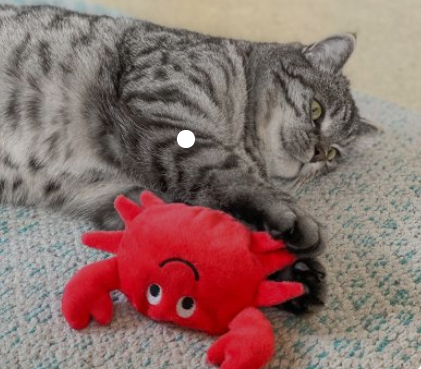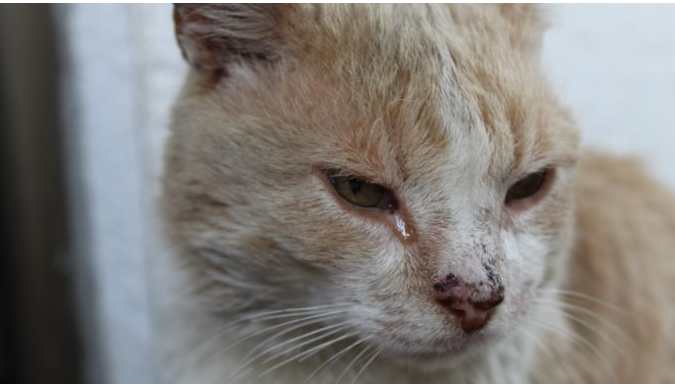Signs of Cancer in Cats, how to recognize and react in time to save your pet’s life
It is very important for all owners of these furry beauties that they are healthy, and here are 10 symptoms of cancer in cats, how to detect it early and treat it appropriately!
Frequent veterinary examinations can be very effective in both early detection and treatment of cancer in cats. Some cancers in cats can be progressive and cause rapid symptoms, others are unfortunately hidden so detection is more difficult, and by the time they are detected it is usually too late for treatment.
To keep our cats healthy, we as owners have a great responsibility for them. Therefore, read these 10 symptoms of cancer in cats and contact your vet immediately if necessary!

10 Signs of Cancer in Cats
1. Weight loss
The wieght lost can be Signs of Cancer in Cats. If you notice that your cat has lost a lot of weight in a very short time, you should see your vet. We consider weight loss normal if it is gradual or on a special diet.
Because cancer cells deprive cats of a lot of energy and nutrients, they often lose weight suddenly and for no apparent reason.
2. Lethargy
After many years of living with cats, we get to know their habits and temperament very well. Cats are known to like to sleep a lot, but when they are awake, they like to play. If the cat sleeps an unusual amount and when it is awake it just doesn’t want to play and hang out with you, then there is definitely something wrong with it.
3. The swelling
When a swelling appears on the cat’s body, we usually notice it immediately. The swelling doesn’t always have to be dangerous, but you should definitely see a vet and find out what it is. Swelling can occur anywhere on the body and can progress slowly or quickly.
4. Bad breath
Very bad breath from your cat is another symptom that can indicate cancer. Here you need to pay very close attention to whether the cat simply needs oral hygiene or if it is something more serious.
5. Sudden lethargy
Tumours in animals are usually very painful, especially if they are on the bones. Bone cancer spreads quickly and pain and discomfort are obvious. Sometimes amputation is the best solution. But don’t worry, cats do very well with three legs, and it is possible to obtain the necessary prosthetic legs. If you notice sudden lethargy in your cat, react immediately!

6. Wounds that cannot heal
If your cat has cancer, the immune system is severely weakened. You will notice that the wounds cannot heal, that this process takes a long time and that the wounds often become infected if they do not heal quickly.
7. Difficulty breathing
If the tumour has affected your pet’s hooves, the symptoms will mainly affect the respiratory system. If you notice that your cat has difficulty breathing or you hear a “whistling” sound when he breathes, take him to the vet immediately! A lung tumour that is not treated usually leads to death by suffocation.
8. Loss of apettite
If your cat refuses to eat her favourite food, or if she just doesn’t eat as much as she used to for a while, this is another reason to contact the vet.
Regardless of the cause of the loss of appetite, a cat can develop fatty liver syndrome. Fatty liver or hepatic lipidosis is very common in cats and can lead to sudden cessation of eating with a fatal outcome.
9. Abnormal sweling
Some tumours cannot be seen or felt, but you may notice swelling in the abdomen or chest. This can be a sign that something dangerous is growing in the cat’s body.
10. Vomiting and diarrhoea
Diarrhoea and vomiting are symptoms that can indicate many diseases, not just cancer. However, if this condition persists, and especially if it is accompanied by drops of blood, then the condition is definitely not good and it is also recommended that you contact the vet immediately!
